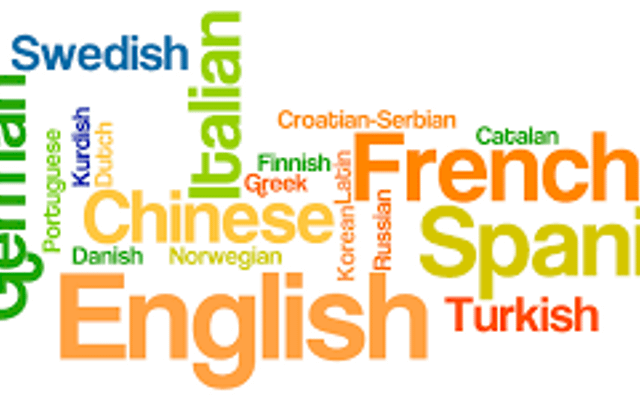Pronunciation, Grammar and Why
With numbers there written in English but can be pronounced in Yara or English example one or you can say lakmevu. A you don’t say a you say the capital letter of a which is A. the rest of the sounds are how you say it and lower case sounds (lower cases in English pronunciation) example L is pronounce in lower case a l and the rest is pronounced like that as well.When putting manners in a sentence the first letter is in Capital example Laka even if it’s the end of the sentence or middle it. Another example: Ko Max this does not apply to wo-, wo- is used at the end of sentences when talking to stranger, elderly, teacher or someone who as administration. Then the rest of the manners in start, middle or near to the end of the sentence its in upper case for first letter another example Laka qfeast wo-
wo- is being polite and respectful. You don’t have to put wo- on end of sentence’s if talking to friends, family members or someone you know but aren’t friends with. (Acquaintances)
When having 2 letters the same in a word you either have the 2nd letter repeated which makes the letter last sound longer. Example= vuu the sound is vuu. If you use Lak in a word and you need to drag its Laak not lakk. If the letter is a 3 letter word in the alphabet you drag the 2nd letter example = Laak. If you have a lettered word with letters you cannot pronounce longer just say the letter again as it is an option. Drag the sound of the 2nd or 3rd letter or say the letter one more time.
Example Laklak. I know I prefer to drag the sound of the 2nd or 3rd letter better then repeating the letter example of what I am talking about =
Hovuuma alakmavuwala or Hovuvuma alakmavuwala.
Seen zoned seen zoned
We have 2 alphabets. 1 alphabet has all letters and 2nd alphabet has letters accept the vowels and letters not used as much. The 2nd alphabet is to make sentences and words shorter. All manners and respect apply to both alphabets.
Saying Otsswala is saying older girl or boy you say this to older boy or girl (Even Siblings which are older than you) you don’t say this to Mum or Dad as you already call them in respect Mum or Dad. If talking about parents try and show respect as possible. Example when talking about parents = Zaim Ko Dad or Zaim Ko Mum. Ko is showing there human and Zaim is parents. These tell the person the parent is a life and is your biological parent. If you are adopted and you know or you don’t call a parent by Mum or Dad say for example Zaim Ko Max
Zaim is used for other people in your family who are older then you but who are not your siblings and cousins when showing respect to older sibling it’s Otsswala for older girl or boy, Wala for older girl and Otsswa for older boy. You say Otsswala, Wala or Otsswa for an older brother or sister and also for older people who aren’t in your family you use Otsswala, Wala or Otsswa for older siblings and for older people who have no relation to you.
When talking about a person its Ko. Zaim ko is parent or older family member, Zaim Ko is more respect. Don’t lower the first letter for manners as it is inaccurate in Yara and Dialect languages.
When saying a name it’s in English for example Max
It’s not in Yara any name of someone, something, living and non-living things which is in. English basically the word is in its language example = Anime. Some names of objects or other are in Yara example talking about the color red you say ivul.
Example with wo-
Putting wo- on the end of the sentences. Is more respectful. You don’t have to put wo- at the end of sentence all the time mainly if you’re talking to your elders and older people. You don’t have to put wo- the end if you’re talking to friends, siblings and cousins but it depends if you have older friends if you have older friends it is optional to put wo- on the end of sentences.
Example Sentence = Walakda naivu balakhu wo-
How are you
Example with being mean
Ko Max if talking rudely or mean it’s still Ko Max when talking mean to someone or about someone else you use the first alphabet and you can use Yara Simplified (You will read this at Page 6. 3rd paragraph.) You don’t use Yara 2nd alphabet as your trying to make the sentence and words long as possible.
If you are talking about people you use Ko
Ko when translated actually means person but Ko can mean person or people. If you’re talking about an object,item and etc accept people its Laka. How u know the difference when talking about something and it involves a manner/respect word example = Kanahuhavu wo-
wo- translated into English is manner.
The difference between wo- and Ko- is the Ko is in capitol in near or in or the start of a sentence. Example = Kanahuhavu Ko Max wo- = Pause Max. In the manners and respect when translated in a sentence Ko and wo- don’t get translated into anything in a sentence.. When for example = Kanahuhavu Ko Max wo- = Pause Max it is not pause person Max polite. As some languages have words which makes it clear that the person is a person but when saying it in a sentence and it gets translated the respectful and manner words get ignored accept for Otsswa, Wala and Otsswala when Otsswa, Wala and Otsswala gets translated it is translated into Older boy, Older girl and Older boy or girl. Example = Otsswala Ko Max = Older boy or girl Max. If you are saying for example People please do not taper with smoke detectors. There is a word for people/person already. Ko is you use if you’re talking about people and then after you put their name. But this is different because you are talking about everyone. So since there is a word for people it would be in Yara Ko kaovuzhavu llak melakgi ginakavui daragiwa Laka hanolakpnvu lvugivungilakiha
Example Naokawaayivugi as highlighted waa as you can see its waa when its actually wa/a two different letters. But to make it easy the wa is not silent but the a is so when you say it you do not say waa you say wa so this is how you would say it Naokawayivugi that’s the pronunciation part. When you spell it the same rules as English apply you have to write or type the silent letter for example if you want to text someone about the English alphabet you would type Naokawaayivugi. See easy so when you say something next time and for example it as wa/a and its read as waa remember when saying it out loud to only pronounce the wa as the a is silent but when you text the words which have waa in it remember to add the extra a as it is only a silent letter its not crossed out its just silent. If you find a word for example llak it is vice versa you pronounce the second letter not the first but when typing the l is still there as it is a silent letter.
The examples and Spelling in this language applies to Dialects languages. Some of manners and respect aren’t in the dialects though.
With words and sentences say if there is a long word you can use English, this is called Yara Simplified For example
Translate gilak Laka English
Translate to English
3 forms of Yara speaking
Yara Modern = Using sentences, words in Yara Alphabet 1.
Yara Casual = Using sentences, words in Yara Alphabet 2.
Yara Simplified= Using sentences, words in Yara Alphabet 1 mixed with English.
Yara Modern is basically just using Yara Alphabet 1 in your sentences.
Yara Casual is shortening sentences by using Yara Alphabet 2.
Yara Simplified is using English words mixed with Yara Alphabet 1 this makes sentences make sense and shorter.
Most used Yara well no one as really used Yara as much but if you want sentences simplified use Yara Simplified, makes sentences shorter. And Yara Casual is short Yara as well just not mixed with English words. Using Yara Simplified you can understand it better because 1 its full words even when translated from Yara. Yara Casual is all in one language but simplified as there is no English Vowels or just there is no vowels in the Yara Alphabet 2. Yara Simplified is better to understand as it is using Yara Alphabet 1 and Yara Alphabet 1 as all letters mixed with English and Yara Alphabet 2 has rarely used letters and vowels are taken out so some words and sentences will be hard to understand.
Join Qfeast to read the entire story!
Sign In. It is absolutely free!


